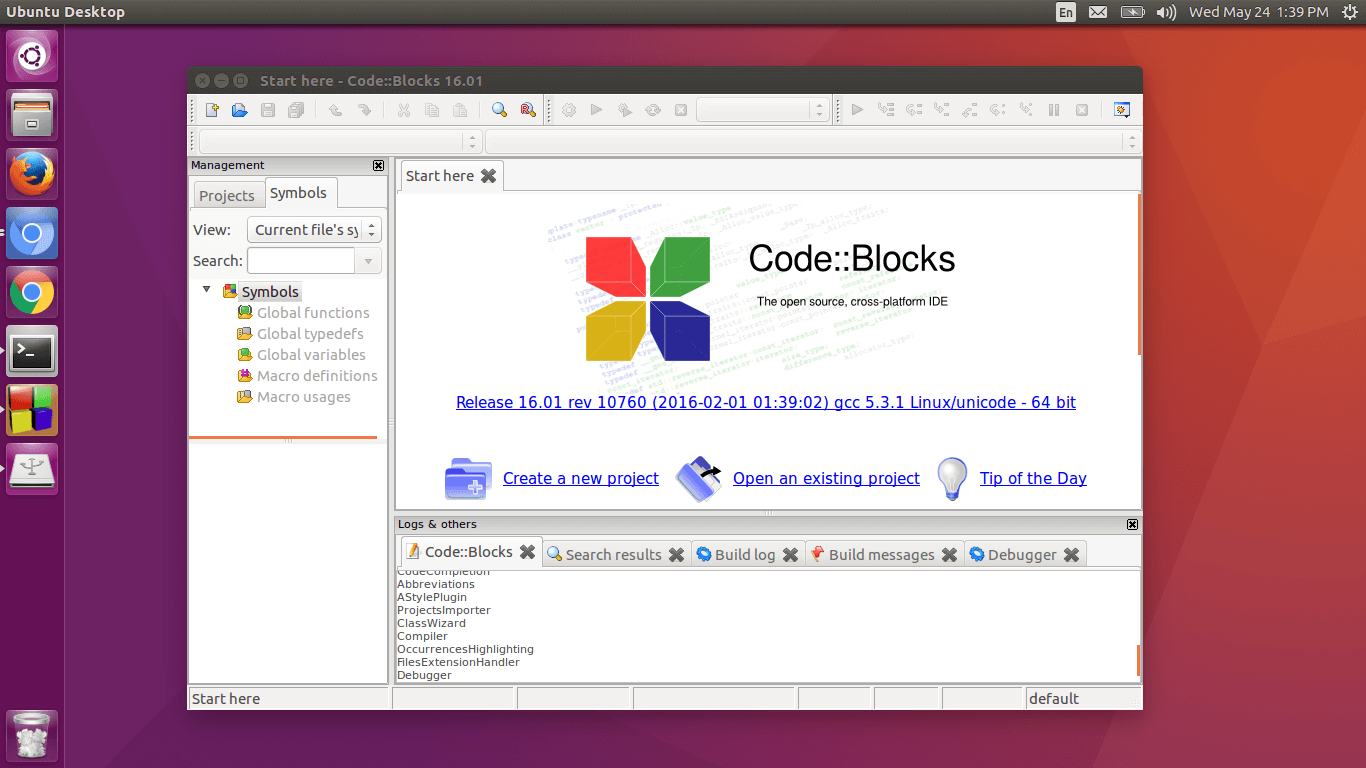

In the implementations in LLVM, properties are emitted into executable binaries as DWARF debug information, which can next beused by binary analysis tools. This thesis presents different approaches to preserve and propagate program properties throughout the optimizing compilation flow with minimal changes to individual transformation passes.
#Codeblocks compiler never finishes code
However, preserving these properties throughout the optimizing compilation flow is hard due to code optimizations which reorder computations or eliminate unused variables. It is thus necessary to propagate these properties,usually expressed in the source level, down to binary code. These analyses and verifications require various security or functional properties about the program being analyzed. In order to ensure security guarantees of binary applications, program analyses and verifications have to be performed at the binary level. More importantly, MSWasm's design makes it easy to swap between enforcement mechanisms as fast (especially hardware-based) enforcement techniques become available, MSWasm will be able to take advantage of these advances almost for free.
#Codeblocks compiler never finishes full
Our evaluation shows that the overhead of enforcing memory safety in software ranges from 22% (enforcing spatial safety alone) to 198% (enforcing full memory safety) on the PolyBenchC suite. Our MSWasm compilers support different enforcement mechanisms, allowing developers to make security-performance trade-offs according to their needs. We use these formal results to then guide several implementations: Two compilers of MSWasm to native code, and a C-to-MSWasm compiler (that extends Clang). This property also lets us reason about the security guarantees of a formal C-to-MSWasm compiler - and prove that it always produces memory-safe programs (and preserves the semantics of safe programs).

To this end, we develop a novel, language-independent memory-safety property based on colored memory locations and pointers. We give a precise and formal semantics of MSWasm, and prove that well-typed MSWasm programs are, by construction, robustly memory safe. In this paper, we build on the original MSWasm position paper to realize this vision. Memory-Safe WebAssembly (MSWasm) proposes to extend Wasm with language-level memory-safety abstractions to precisely address this problem. Unfortunately, memory-unsafe C code remains unsafe when compiled to Wasm - and attackers can exploit buffer overflows and use-after-frees in Wasm almost as easily as they can on native platforms. Such code can be introduced into programs in a variety of ways and eliminating it can require significant analysis.Most programs compiled to WebAssembly (Wasm) today are written in unsafe languages like C and C++. The presence of code that has no effect or is never executed can indicate logic errors that may result in unexpected behavior and vulnerabilities. Likewise, code that is never executed because it is #ifdefed out does not violate this guideline, on the grounds that it could be subsequently used in another application, or built on a different platform. MSC12-EX3: Unused functions and variables that are part of an exported library do not violate this guideline. Use comments consistently and in a readable fashion for an illustration.) MSC12-EX2: It is permissible to temporarily remove code that may be needed later.

Default: return "Unknown color" /* Not dead code */


 0 kommentar(er)
0 kommentar(er)
